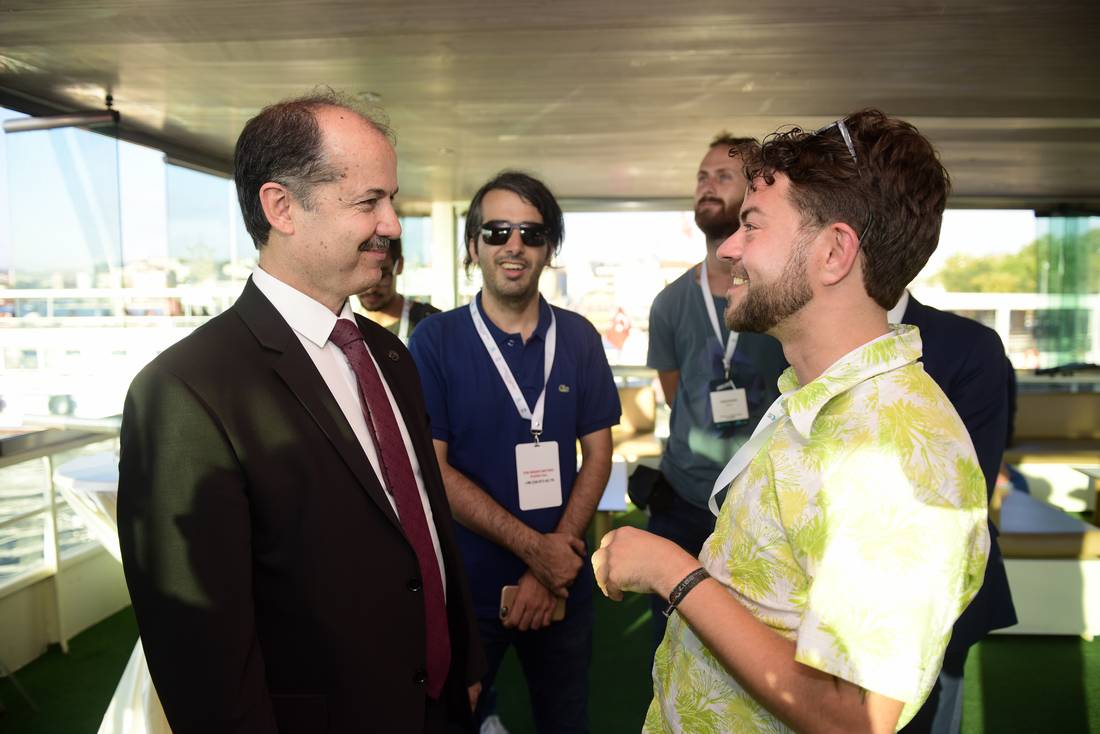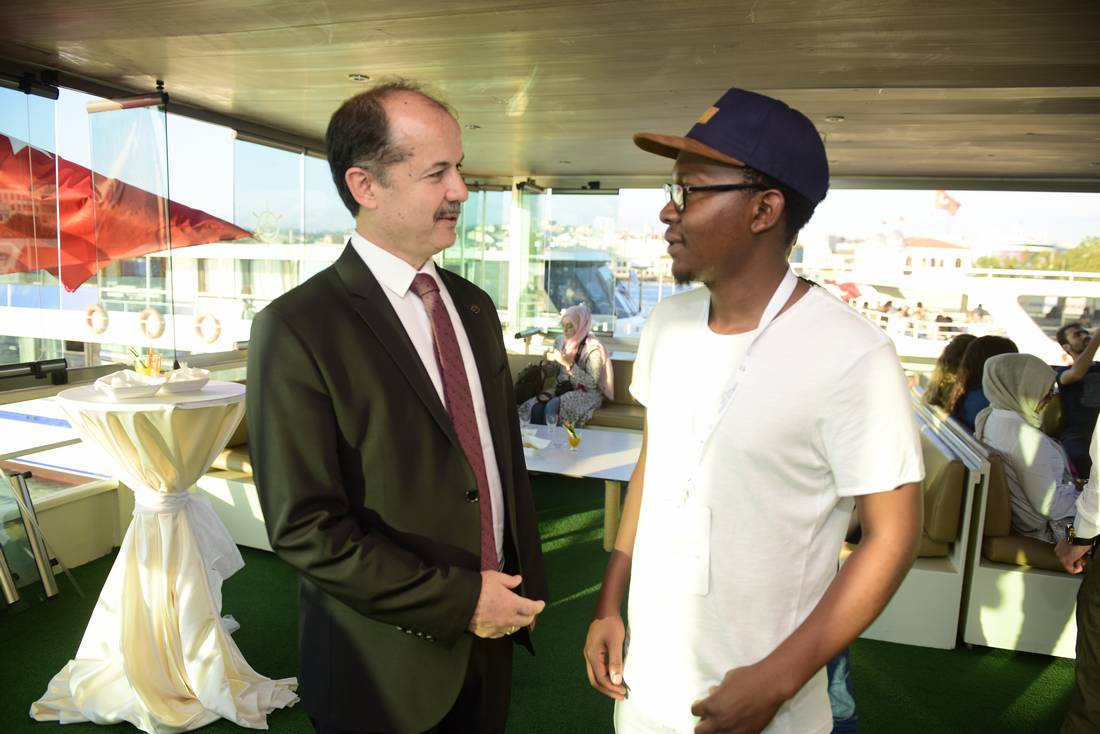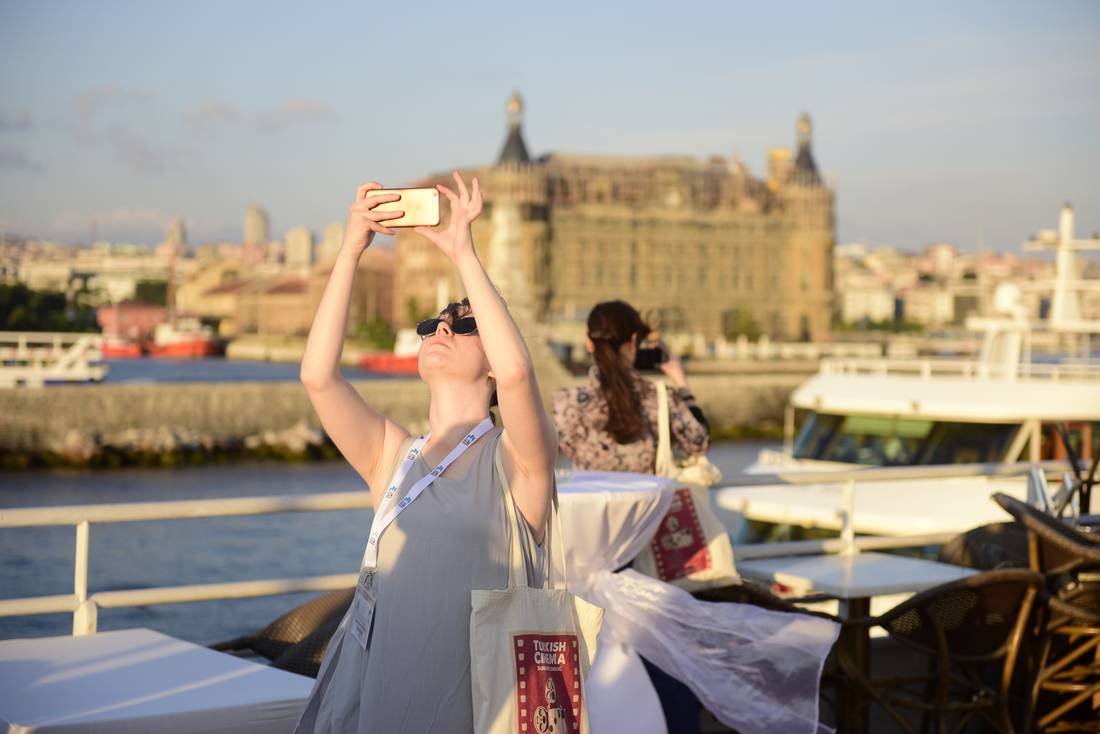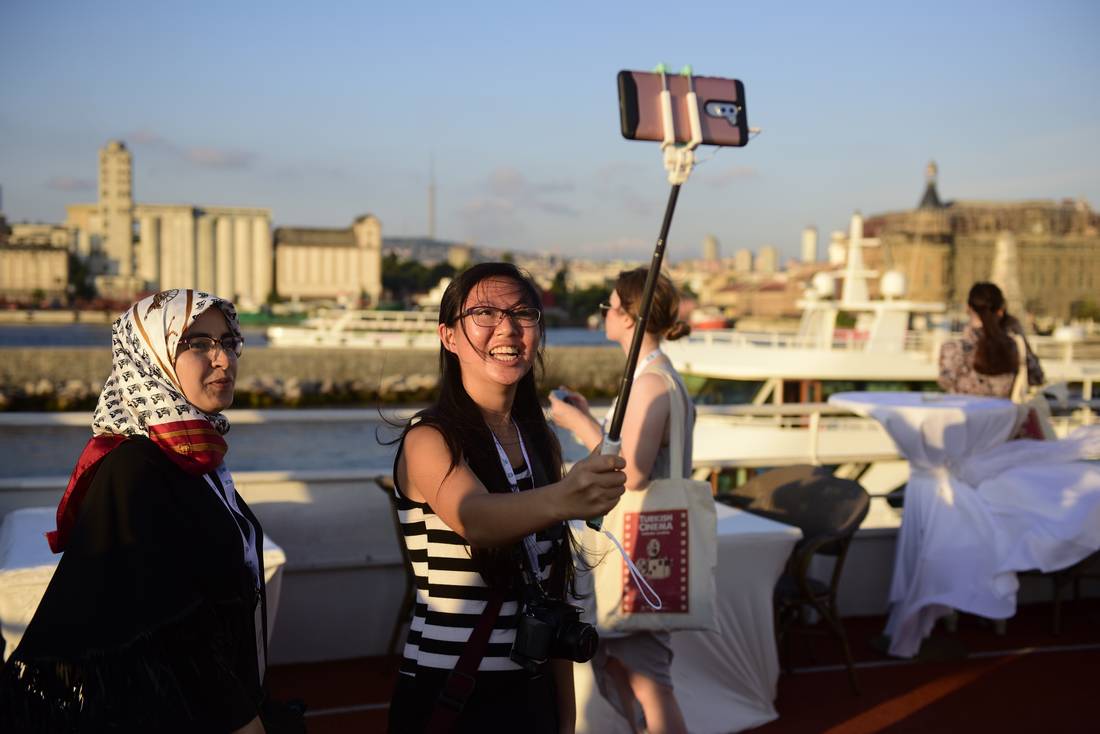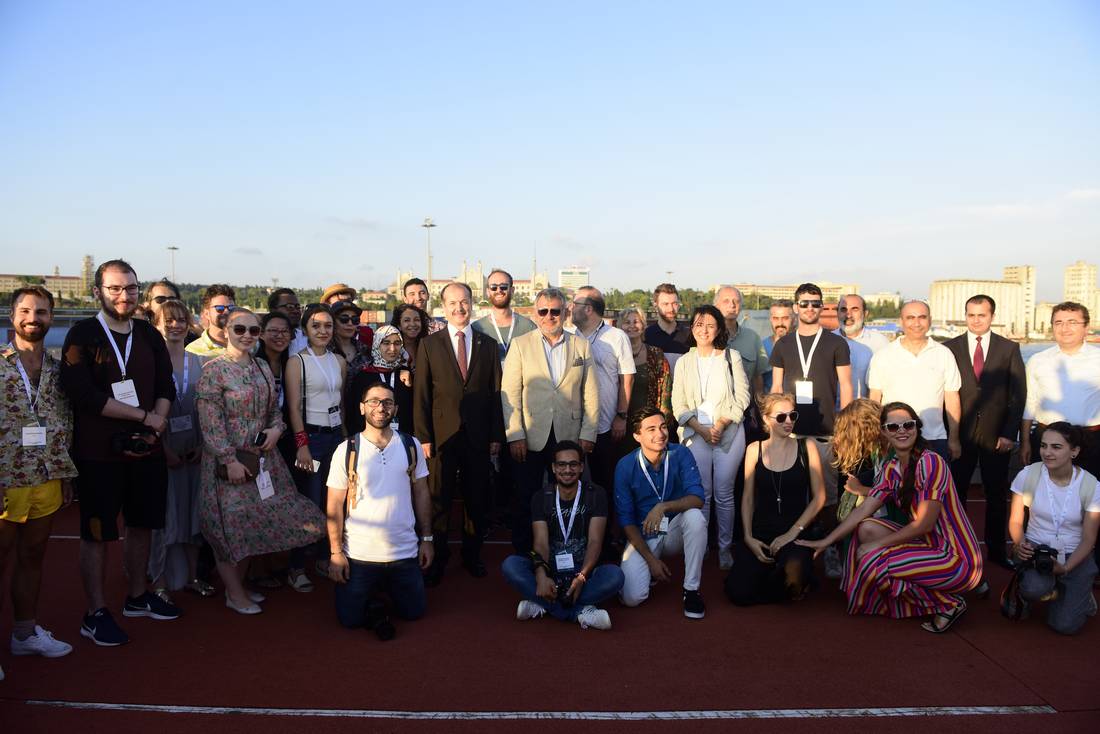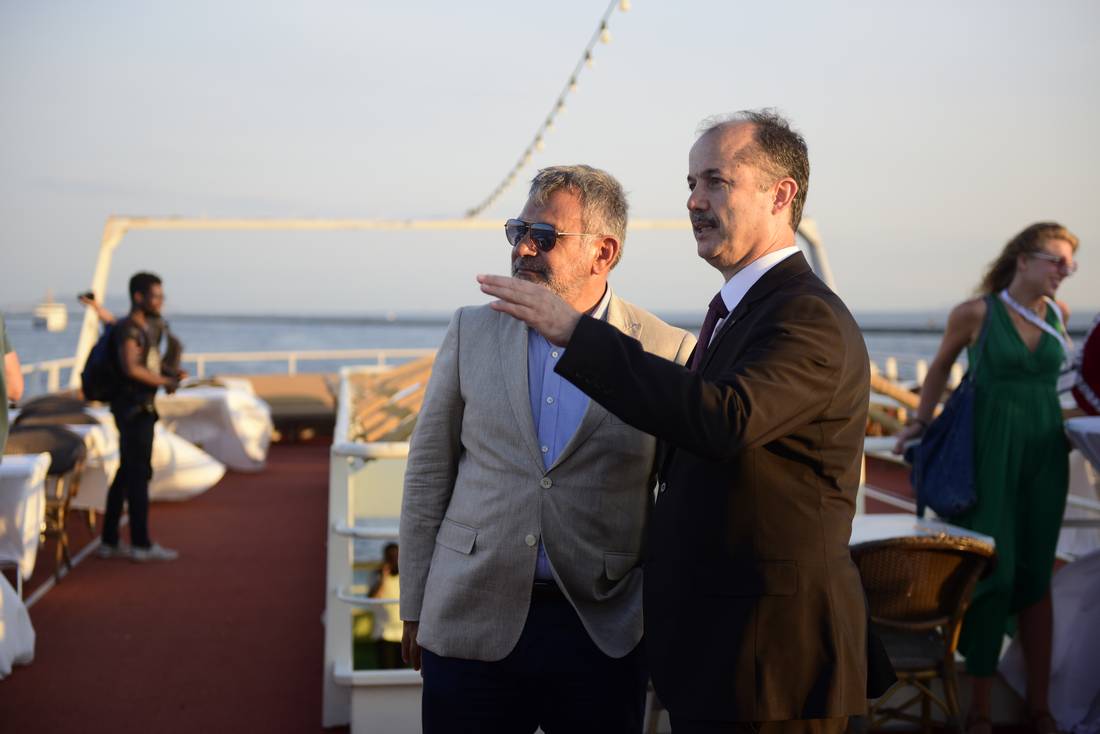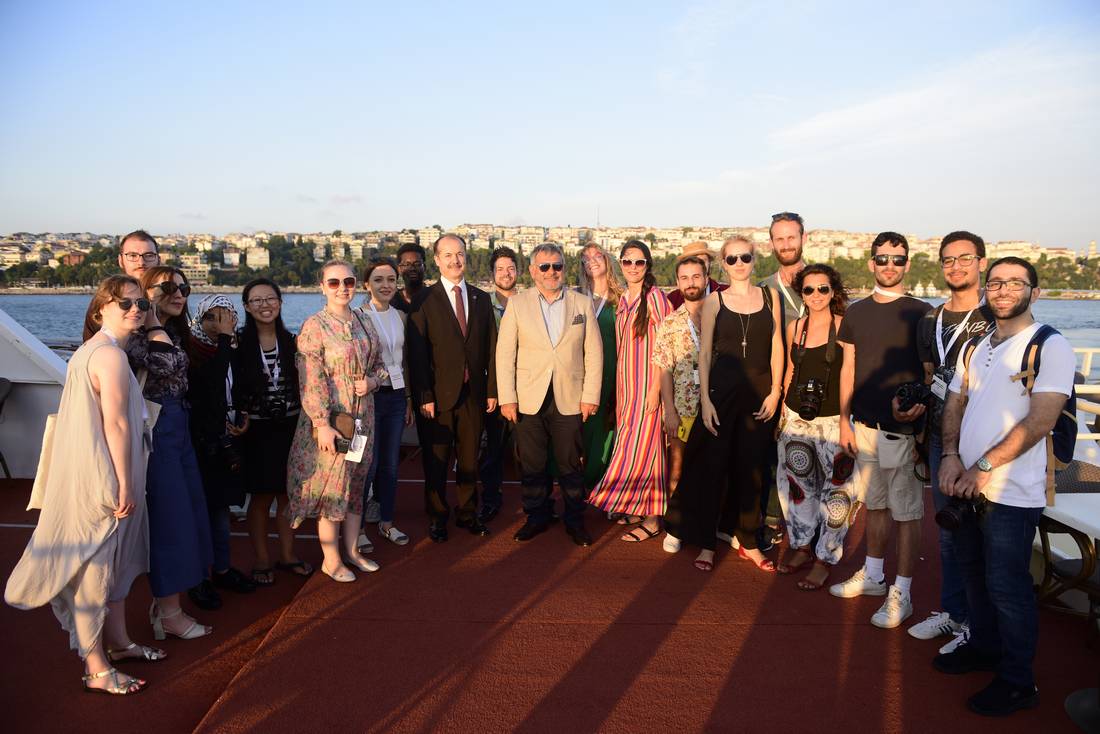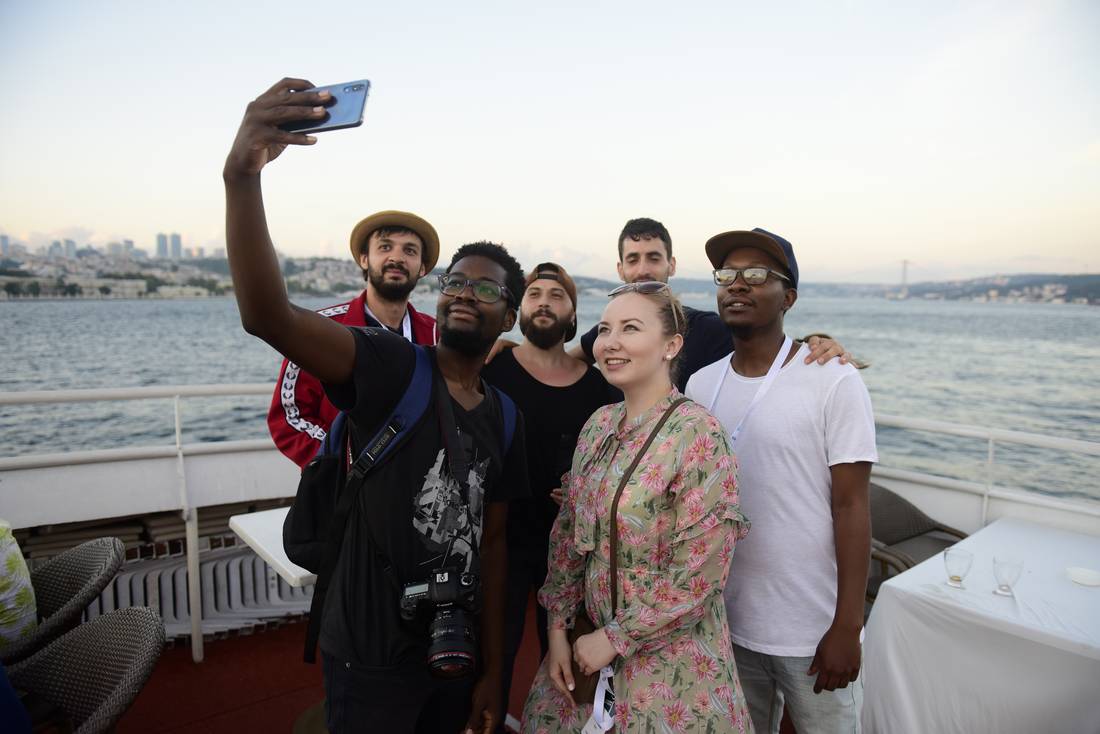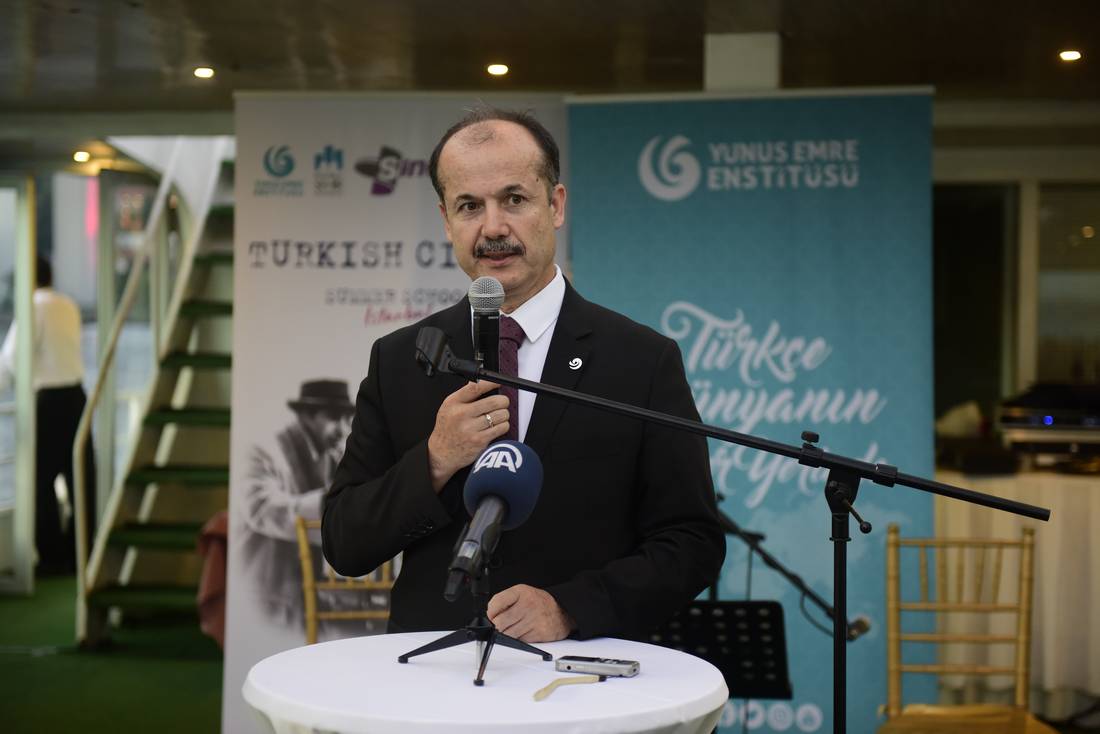The official opening ceremony for the Turkish Cinema Summer School took place on the Bosporus. The programme was held between 30th July and the 12th of August 2018 by the Yunus Emre Institute with the cooperation of Istanbul Şehir University and contributions of the General Directorate of Cinema.
The 23 young movie makers from 20 different countries, attended the summer school’s opening ceremony which hosted among others, the President of Yunus Emre Institute Prof. Şeref Ateş, Vice Chancellor of Istanbul Şehir University Prof. Peyami Çelikcan, directors Derviş Zaim and Öner Kılıç, screen writers Suat Köçer and İhsan Kabil, representatives of embassies, the cinema sector, academics, representatives of cultural organizations, members of press and many other prominent guests.
After the opening speeches, all guests had the chance to enjoy the beauties of Istanbul from the Bosporus, which is a natural film plateau itself.
Turkish Cinema Summer School Opening Program Speeches
Prof. Şeref Ateş, President of Yunus Emre Institute:
“As Yunus Emre Institute we think culture, art and literature are the best ways to establish bonds with the world. The name Yunus Emre is important in our history. He is one of the most important names of Anatolian culture in Turkish. In short, as an institute that puts people in the very center of our work with the aim to encourage communication and dialogue between different peoples, we have organized summer school programmes for the past 8 years. For the first time in one branch of this summer school, we will embrace cinema thematically. With the cooperation of Istanbul Şehir University, we aim to make Turkish cinema gain recognition abroad.”
Prof. Peyami Çelikcan, Rector of Istanbul Şehir University:
“Turkish Cinema Summer School offers a quite intense, informative and instructive programme. As a university with more than one thousand international students from 84 countries, we endeavor to give an education of international standards in the fields of cinema and television as well as in all other fields. When you have completed the programme, you will have gained a wide range of information about both fictional Turkish cinema and documentary Turkish cinema. At the same time, we will encourage and create a perspective not only about modern Turkish cinema, but also about classic Yeşilçam cinema and early Turkish cinema. Beyond all this, we will give you access to valuable Turkish directors, actors/actresses and bring you in contact with the movies of Turkish cinema. Thanks to this programme, you will also have the opportunity to discover our beautiful Istanbul, which was the capital of several world civilizations.”


